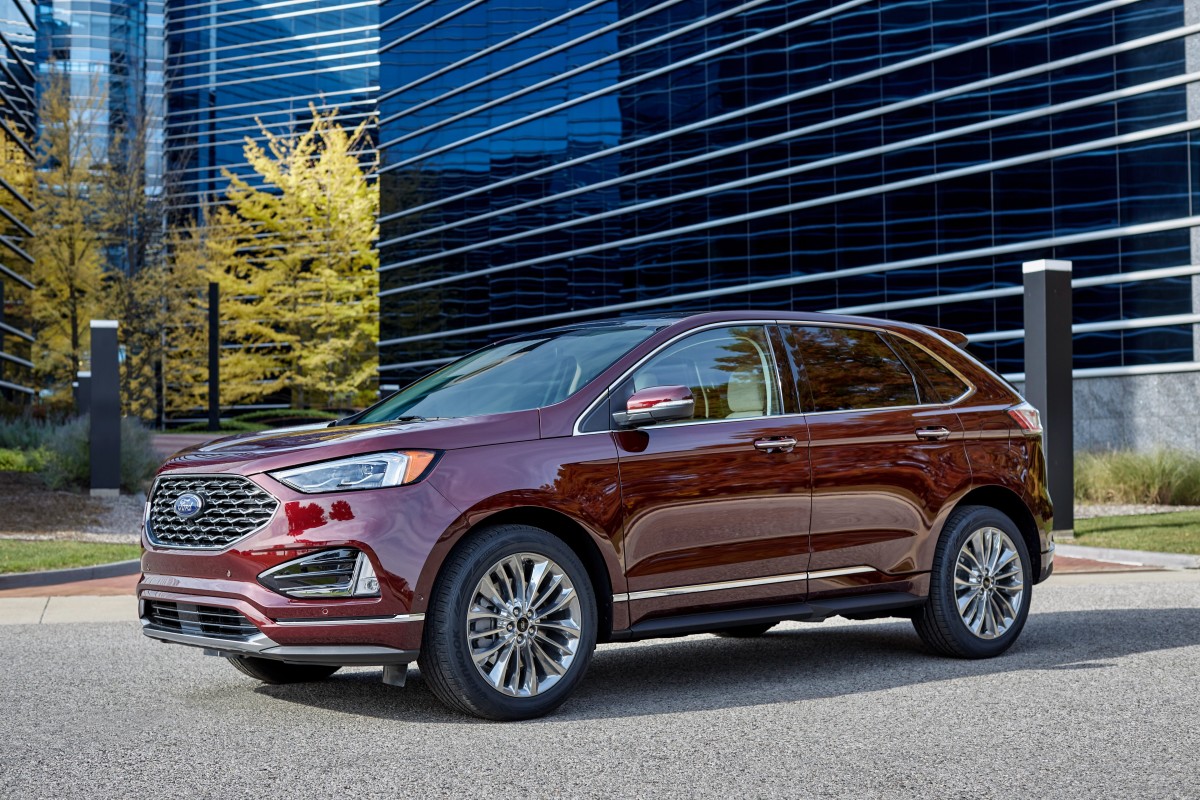When it comes time to get rid of your old car, you might wonder: "Should I sell my car to a dealer or privately?" Selling privately is more likely to net you the best price. At the same time, the convenience and speed of selling to a dealer might also be your top priorities. If you're hoping to sell your car, using a dealer can be a great option, so here's what to know about selling your car to a dealer, and how it compares with selling your car online or privately.
Selling Your Car to a Dealer: What You Need to Know
- Pros and Cons of Selling to a Dealer
- How to Find Your Vehicle's Value
- Using CarGurus to Value Your Car
- Selling Your Car to a Dealer vs Selling Privately
- Selling Your Car to a Dealer vs Trading it in
- Selling Your Car to a Dealer vs Selling it Online
- Steps to Take Before You Sell Your Car
- FAQ

Pros and Cons of Selling to a Dealer
Are you noticing signs it's time to sell your car? Here are some advantages and drawbacks to selling your vehicle to a dealership:
Pros
- Convenience. When you're selling to a dealership, the dealer handles the paperwork. That means you won't have to tackle that task, which can make things more convenient for you.
- Safety. When selling to a private party, you have to set up test drives with strangers you may have met via Autotrader or Craigslist, which puts you in a potentially dangerous situation. And if you make a sale, the best payment method is cash, which means you'll have to worry about making it home safely from the location with all that cash on your person. A dealership is generally a trusted location and you can complete your transaction without safety concerns.
- Speed. Selling to a dealership is also quicker than listing a car online or in a local newspaper. You won't have to sit around waiting, fielding multiple phone calls or emails, only to find out that the buyer is just kicking the tires. Dealers either will or won't buy your car, and they will typically let you know one way or the other on the spot.
- Tax savings. If you're purchasing a vehicle from the dealer you're selling to, many states will deduct the sale price of your car from the cost of the one you're buying when calculating sales tax on your new ride. So, for example, if you're selling a vehicle to a dealer for $10,000 and purchasing one for $30,000, you'd only pay sales tax on the remaining $20,000.
Cons
- Smaller payout. Selling your car privately will generally net you more money than choosing to sell it to a dealership. Dealers handle all the hard parts of the transaction while making it fast and easy to get money for your old car. In exchange, they expect to make a profit on the deal. After all, dealers are in business to make money, so they aren't inclined to provide those services for free. Since you're selling a car instead of buying, the only way for them to extract money from the transaction is by paying you less for your used car. The car dealer takes on the hassle of car buying, and in return, you get a little less for your trade-in.

How to Find Your Vehicle's Value
When you research your car's value online, you will likely be presented with three numbers:
-
The first is a value for private party sales. This figure is the market value you can reasonably expect when selling to an individual.
-
The second is a figure from a dealer. This could be for a purchasing your car outright, or what the dealer values your car as a trade-in towards a new car.
-
Finally, depending on the platform you use, you may also see what is known as an instant cash offer. This figure is a dollar amount that a car buying service will pay you on the spot for your car, usually without a test drive or inspection.
Using CarGurus to Value Your Car
By using CarGurus' instant offer tool to value your car, you'll see offers from local dealers. Simply choose the best offer and we'll put you in touch with the dealership to finalize the sale.
Selling Your Car to a Dealer vs Selling Privately
Private party sales are when you sell to an individual and handle the entire process yourself. The general rule is that selling a car this way can be difficult, and certainly involves more effort than selling to a dealer. However, private party sales are typically the most lucrative way to sell your car, so this is an excellent way to get top dollar if you're willing to put in the extra legwork. For more information, read our full guide to selling your car privately.
Selling Your Car to a Dealer vs Trading it in
While not guaranteed, if you want to sell your car to help pay for a new vehicle, trading in towards a new vehicle from the same dealership can potentially net you more money than you'd get by simply selling it to the same dealer.
This is because a trade in gives the dealer a chance to sell a car as well as buy one, in turn moving them closer to monthly or quarterly sales targets. If trading in, remember to not only negotiate the trade in value, but also the balance that you'll be due to pay on your new vehicle. Trading in can lower your out-of-pocket purchase expenses up front and, if you're paying on finance, will ultimately lower your monthly payment too. You may also get a better interest rate if you're financing since the down payment reduces your loan amount.
Selling Your Car to a Dealer vs Selling it Online
Selling your car online offers similar convenience to selling to a dealer but with the advantage of getting a range of offers. What's more, some online selling platforms will offer your car to local dealers as part of the instant offer process. Sellers are then given two options: accept the local dealer offer, in which case they'll then need to take their vehicle to the dealer for an appraisal and to complete the sale; or, sell fully online in which case a collection will be arranged. In either instance, using the online route will ensure you are guided through the process.
Steps to Take Before You Sell Your Car
Whether you're selling to a dealer, to a private party, or online, here are some steps to take as you prepare to sell your vehicle:
1. Gather the relevant paperwork. Locate the car's title, because you'll need to hand the vehicle title over to the new owner. Also track down any servicing and maintenance details, the car's handbook and, if your car is still under warranty, locate the warranty paperwork; a vehicle still under warranty will be more attractive to buyers. If selling privately, a vehicle history report will provide insight that may appeal to buyers.
2. Write down important details. Write down your car's make, model, trim, and odometer reading. If you plan to post a vehicle listing or get an instant online offer, you'll need to include these details. If your car has optional or aftermarket equipment, note down those features as well.
3. Get the car ready for sale. Remove personal items, and clean the exterior and interior. First impressions matter in the sales process, so ensure your vehicle looks its best.

FAQ
How do I sell my car to a dealership for the most money?
Shopping around is essential if you want to sell your current car to a dealership for the most money. The payout may vary from dealer to dealer, so visit more than one to improve your chances for getting a great deal. One conventient solution is to use the CarGurus Sell My Car tool. Simply enter some basic information about your car and receive up to five offers from local dealerships. Should you wish to accept an offer we'll put you in touch with the dealership to appraise your car and finalize the sale.
Does it make sense to fix a car before selling?
If the cost of repairs exceeds the value of your car, it doesn't make sense to fix your vehicle before selling. If the repairs cost significantly less than your car's value, fixing your car may make it more appealing to buyers. However, you'll need to decide if it's worth the hassle.
What should you know before selling your car?
Before selling your car, know you have options. You could sell privately, sell or trade it to a dealer, or sell it online via an instant cash offer. And what if you've leased your car? You can sell a leased car to a private buyer or a dealership.
How honest should you be when selling a car?
You must be honest when selling a car. If you sell to a private party, and you're dishonest about the car's condition or problems, they could sue you if they learn you've been deceptive during the sales process.



